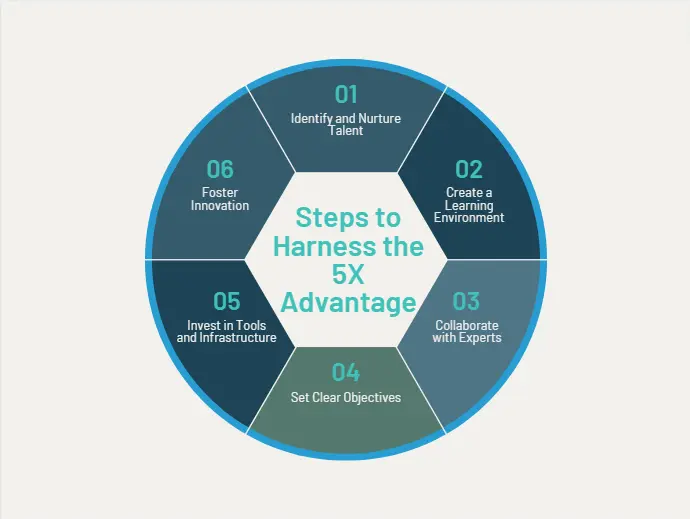Table of Contents
In today’s fast-paced business landscape, the integration of artificial intelligence (AI) has become paramount for companies seeking a competitive edge:
In the current business environment, characterized by rapid technological advancements and changing consumer expectations, the adoption of artificial intelligence (AI) has become not just a choice but a necessity for companies aiming to stay competitive. AI offers a range of capabilities that can revolutionize how businesses operate, from enhancing customer experiences to optimizing operations and decision-making. It enables companies to respond to market dynamics more efficiently, making it crucial for those who want to stay ahead in the race.
Marketplaces, in particular, have witnessed a significant transformation in recent years, as AI technologies continue to reshape the way businesses operate:
Marketplaces, which serve as platforms for buying and selling goods and services, have experienced a profound evolution due to the ongoing advancements in AI technologies. These transformations encompass various aspects, from the way products are recommended to customers based on their preferences and behaviors to the automation of tasks such as supply chain management and customer support. AI in marketplace is reshaping the landscape by making it more dynamic, data-driven, and capable of delivering highly personalized and efficient experiences to users.
One of the most effective strategies for harnessing the full potential of AI in marketplaces is by leveraging the internal talent within your organization:
To fully capitalize on the capabilities of AI in marketplaces, one of the most powerful and sustainable strategies is to cultivate AI expertise within your own organization. This means identifying and nurturing individuals within your workforce who have the aptitude and interest in AI, and then providing them with the training and resources needed to develop AI solutions tailored to your specific marketplace.
Leveraging internal talent offers several distinct advantages, including a deep understanding of your marketplace’s unique dynamics, more accessible access to proprietary data, alignment with your company’s culture and objectives, cost-efficiency, and long-term adaptability to evolving AI technologies. This internal approach ensures that AI in marketplace remains self-reliant and well-prepared to navigate the ever-changing AI landscape while maintaining a competitive edge.

Why AI in Marketplaces Matters
AI in marketplaces is not just a trend; it’s a necessity. In today’s rapidly evolving digital landscape, the role of AI in marketplaces is no longer a matter of choice but a critical component for success. The digitization of commerce has transformed the way consumers interact with businesses. As a result, consumers have raised their expectations for more personalized and efficient experiences.
With the advent of e-commerce, online marketplaces, and digital storefronts, consumers now demand a level of service that caters to their individual preferences and needs. They expect product recommendations that resonate with their tastes, timely assistance from customer support, and seamless, hassle-free shopping experiences.
AI in marketplaces emerge as the linchpin that empowers to not only meet but exceed these consumer expectations. Here’s how:
- Optimizing Search and Recommendation Engines: AI algorithms can analyze vast amounts of data, learning from user behavior to provide highly accurate product recommendations. This personalization greatly enhances the chances of customers finding products that truly interest them, ultimately boosting sales and customer satisfaction.
- Enhancing Customer Service through Chatbots: AI-driven chatbots provide round-the-clock customer support, answering inquiries, resolving issues, and guiding users through their buying journey. This efficiency not only reduces response times but also ensures that customers receive assistance when they need it, improving their overall experience.
- Streamlining Supply Chain Operations: AI aids in supply chain management by predicting demand, optimizing inventory levels, and even automating aspects of logistics. This results in more efficient operations, reduced costs, and the ability to offer customers faster delivery options.
- Providing Invaluable Insights through Data Analytics: Data analytics capabilities enable AI in marketplaces to gain deep insights into customer behavior, market trends, and operational efficiencies. This data-driven approach allows businesses to make informed decisions, tailor marketing strategies, and continuously improve their services.
In essence, AI in marketplaces is the driving force that empowers to deliver more relevant products, faster service, and superior customer experiences. It doesn’t just cater to the needs of today’s customers; it anticipates them. By harnessing the power of AI, marketplaces can not only survive in the digital era but thrive, forging stronger connections with customers, increasing efficiency, and staying ahead of the competition.
The Internal Talent Advantage

While many companies may consider outsourcing AI-related tasks, there is a significant advantage to developing and nurturing internal AI talent. This advantage can be quantified as a 5X boost in AI effectiveness.
1. Domain Knowledge: In the context of AI in marketplaces, the significance of domain knowledge cannot be overstated. When a company harnesses its internal talent for AI development, it benefits from a team that intimately understands the intricacies of its specific use of AI in marketplace, its customer base, and the unique dynamics of its industry. This deep, contextual knowledge serves as a powerful asset when creating AI solutions customized to the company’s specific business needs.
Internal talent’s familiarity with customer preferences, industry trends, and the challenges unique to the marketplace allows for the development of AI applications that are not only highly effective but also finely tuned to meet the demands and expectations of the company’s target audience. This, in turn, leads to a more competitive and customer-centric marketplace experience, ultimately driving growth and success in the AI-driven landscape.
Example: When Amazon harnesses its internal talent for AI development, it benefits from a team that intimately understands the intricacies of its specific use of AI in the marketplace, its vast customer base, and the unique dynamics of the e-commerce industry. This deep, contextual knowledge serves as a powerful asset when creating AI solutions customized to Amazon’s specific business needs. Partnering with an Amazon marketplace agency can further enhance these efforts by providing specialized expertise and strategic insights.
Amazon’s internal talent’s familiarity with customer preferences, marketplace trends, and the challenges unique to the e-commerce giant allows for the development of AI applications that are not only highly effective but also finely tuned to meet the demands and expectations of Amazon’s diverse customer base. This, in turn, leads to a more competitive and customer-centric advertising experience on the platform, ultimately driving growth and success in the AI-driven world of Amazon Ads.
2. Data Accessibility: Internal teams, intimately familiar with the intricacies of your company’s operations, have easier access to your company’s proprietary data, ensuring that AI models for your AI in marketplace are trained on the most relevant and up-to-date information.
Example: Netflix has a vast amount of proprietary data related to user viewing habits, preferences, and content consumption. This data is invaluable for training their recommendation algorithms, which are a critical part of their user experience. Internal teams at Netflix have direct access to this data, allowing them to continuously improve and personalize content recommendations for their subscribers. This accessibility to proprietary data is a significant advantage for Netflix, as it enables them to deliver highly relevant content suggestions, leading to increased user engagement and retention.
3. Cultural Fit: Your internal team, already aligned with your company culture, values, and goals in the context of AI in marketplace, ensures a smoother integration of AI solutions into your organization’s existing processes and practices.
Example: Google’s internal team is well-versed in the company’s culture of innovation, its commitment to organizing and making information universally accessible, and its emphasis on user-centric design. This cultural alignment allows Google to seamlessly integrate AI solutions into its products and services, such as search, advertising, and cloud computing.
Google’s employees, who are already immersed in the company’s culture, can more effectively work on AI projects that enhance the user experience, improve search algorithms, and deliver innovative AI-driven solutions, all while maintaining the core values that Google holds dear. This cultural cohesion has contributed to Google’s success in staying at the forefront of AI technology and its widespread adoption across various products and services.
4. Cost Efficiency: Training and retaining internal AI talent in the realm of AI in marketplace can be more cost-effective in the long run compared to continuously outsourcing AI expertise.
Example: Walmart is one of the world’s largest retail companies and has made significant investments in AI and technology to enhance its operations. They have established their own data science and AI teams, focusing on various aspects, including supply chain optimization, inventory management, customer personalization, and more.
By developing in-house AI expertise, Walmart aims to reduce costs associated with outsourcing while gaining better control over AI solutions tailored to their specific retail needs. This approach allows them to leverage their vast amounts of proprietary data and industry-specific insights effectively, making the long-term investment in internal AI talent a cost-efficient strategy.
5. Long-term Sustainability: In the context of AI in marketplaces, achieving long-term sustainability through the cultivation of internal AI expertise is a strategic imperative. This approach enables your organization to lessen dependence on external vendors for AI solutions, thereby affording you greater autonomy and control over your AI-driven initiatives.
By nurturing and expanding your in-house AI talent, you establish a resilient foundation for staying at the forefront of AI technologies and applications within the dynamic marketplace landscape. This not only ensures cost-efficiency in the long run but also empowers your organization to swiftly adapt to evolving AI trends, customize solutions to meet your marketplace’s specific needs, and maintain a competitive edge in delivering increasingly personalized, efficient, and innovative customer experiences.
Example: General Electric, a multinational conglomerate, has invested significantly in developing its internal AI capabilities. GE has used AI to enhance its operations in various sectors, including aviation, healthcare, and energy. By building an internal team of data scientists and AI experts, GE has been able to create AI-powered solutions that optimize maintenance schedules for jet engines, improve the efficiency of power plants, and enhance medical imaging equipment, among other applications.
Through its internal expertise, GE has not only reduced costs associated with AI development but has also ensured that it can adapt and evolve its AI technologies over time to meet changing industry needs. This approach has allowed the company to maintain a competitive edge and continue to deliver innovative AI-driven solutions across its various business segments.
Steps to Harness the 5X Advantage
To unlock the 5X advantage of internal talent of AI in marketplaces, consider the following steps:

1. Identify and Nurture Talent:
- To harness the power of AI in marketplace, start by identifying employees within your organization who have a genuine interest in AI or related fields.
- Provide training opportunities, whether through workshops, online courses, or formal education, to help your employees develop their AI skills.
- Encourage cross-functional collaboration by bringing together individuals from different departments to work on AI projects. This cross-pollination of ideas can lead to innovative solutions.
2. Create a Learning Environment:
- Establish a company culture that promotes continuous learning and development. Encourage employees to explore AI projects and share their findings with their colleagues.
- Recognize and reward employees for their AI-related achievements, fostering a culture of innovation and knowledge sharing.
3. Collaborate with Experts:
- Recognize that building internal AI expertise doesn’t mean you have to go it alone. Partner with external AI experts, data scientists, or AI consulting firms who can provide guidance and mentorship to your internal team.
- These experts can share best practices, introduce the latest AI technologies, and help your team solve complex challenges, accelerating your AI initiatives.
4. Set Clear Objectives:
- Define specific projects that align with AI in marketplace’s strategic goals. Consider how AI can enhance customer experiences, streamline operations, or optimize your marketplace’s offerings.
- Create clear and measurable key performance indicators (KPIs) to assess the impact of AI on these objectives. Regularly track progress and adjust your strategy as needed to achieve AI in marketplace goals.
5. Invest in Tools and Infrastructure:
- Ensure your internal team has access to the necessary tools and infrastructure to develop, test, and deploy AI solutions effectively.
- This might involve investing in AI development platforms, cloud computing resources, or data analytics tools. Robust infrastructure is essential for scaling AI in marketplace projects setting.
6. Foster Innovation:
- Encourage your internal team to think creatively and push the boundaries of what AI in marketplace can achieve.
- Create a culture that rewards innovation and supports experimentation. Give your team the freedom to explore novel AI applications, which can set your marketplace apart from the competition.
By following these steps, your organization can effectively develop and leverage internal AI expertise to unlock the 5X advantage in the use of AI within your marketplace. This approach will not only enhance your marketplace’s competitiveness but also ensure long-term sustainability in the ever-evolving landscape of AI technologies.
Conclusion
AI in marketplace has emerged as a transformative force, presenting a myriad of opportunities to revolutionize the way businesses interact with their customers. It is a game-changer that can elevate customer experiences to unprecedented levels, offering personalized recommendations, faster problem resolution through AI-powered chatbots, and streamlined transactions.
Simultaneously, AI can significantly enhance operational efficiency, optimizing supply chain management, inventory control, and resource allocation. Furthermore, AI in marketplace opens the door to a competitive advantage that can differentiate from the rest. With the power of data-driven insights, you can anticipate market trends, fine-tune your offerings, and maintain a dynamic presence in a rapidly evolving landscape.
The key to seizing these opportunities lies in harnessing the 5X advantage of internal talent. By nurturing AI expertise within your organization, you position yourself at the vanguard of AI innovation. Your internal team, intimately familiar with your marketplace’s unique nuances, can craft AI solutions that resonate with your customers on a deeper level. This intrinsic understanding enables you to address the specific challenges and requirements of your marketplace, tailoring AI implementations for maximum impact.
What sets this strategic approach apart is its emphasis on long-term sustainability. Rather than relying on external vendors whose solutions may not fully align with your organizational goals, building internal AI expertise ensures self-reliance. You are not beholden to the changing priorities or capabilities of third-party providers. Instead, your organization can adapt and evolve its AI technologies in lockstep with the ever-shifting AI landscape. This self-sufficiency translates to cost savings, stability, and a nimble response to market dynamics.
In summation, this approach represents a sustainable and cost-effective journey toward unlocking the full potential of AI in marketplaces. It’s a path to a thriving business in the digital age, one where your marketplace stands out with AI-driven innovations, enhances customer experiences, operates efficiently, and maintains a forward-looking position that anticipates and embraces the future of AI.





